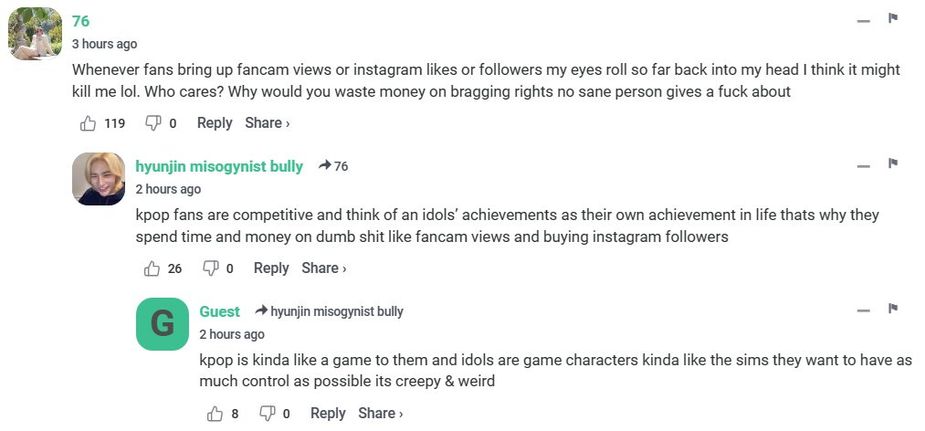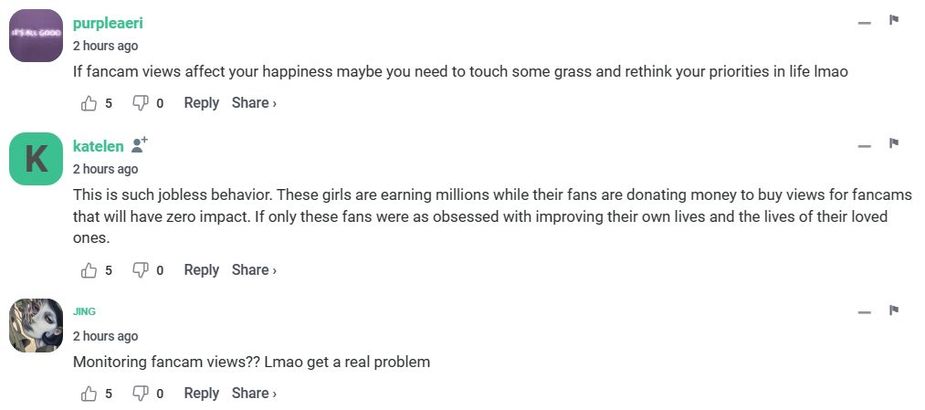The K-Pop industry can be a highly competitive industry not only between different groups, but even between members of the same group. There will always be some idols that, for some reason or another, will be more or less popular than their own groupmates, and that can lead to fanwars within the group’s own fandom.

A good example of this being an ongoing issue is happening right now between the members of aespa. For their latest comeback with “Supernova”, the idols recently performed on Inkigayo on May 19 and, like usual, individual fancams and facecams were released along with the full group performance.
Even within a couple hours of the facecams being uploaded, though, fans noticed something odd about the numbers. More specifically, though Karina‘s facecam already had more views than Winter‘s, the latter had significantly more likes, suggesting that views might be being bought for Karina.
At this time, Karina had 27k views and 3k likes while Winter had 24k views and 4.6k likes.

Some time later, the numbers were even more suspicious. Karina’s views had shot up to 66k but her likes were only at 3.2k, while Winter’s views went up only to 31k but her likes jumped up to 5.3k.

As of the time of this writing, which is 19 hours after the videos were posted, Karina’s facecam has 562k views and 15.0k likes…

While Winter’s facecam has 76k views and 7.2k likes.

So while the views and likes have gone up for both videos, the ratio is still totally different. For Karina’s facecam, there are about .03 likes per view, while for Winter’s, there are about .09 likes per view. This might not seem like a huge difference, but it is when you’re looking at tens or hundreds of thousands of views.
These numbers definitely suggest that views are being bought for Karina on a bigger scale than for the other members. The “fake views” got enough attention that it became a topic of conversation on an online forum post, and this is what people had to say about this seemingly pointless practice of buying views.









Unfortunately this doesn’t seem to be behavior that will end anytime soon.
Source: Pann Nate and Pann Choa







